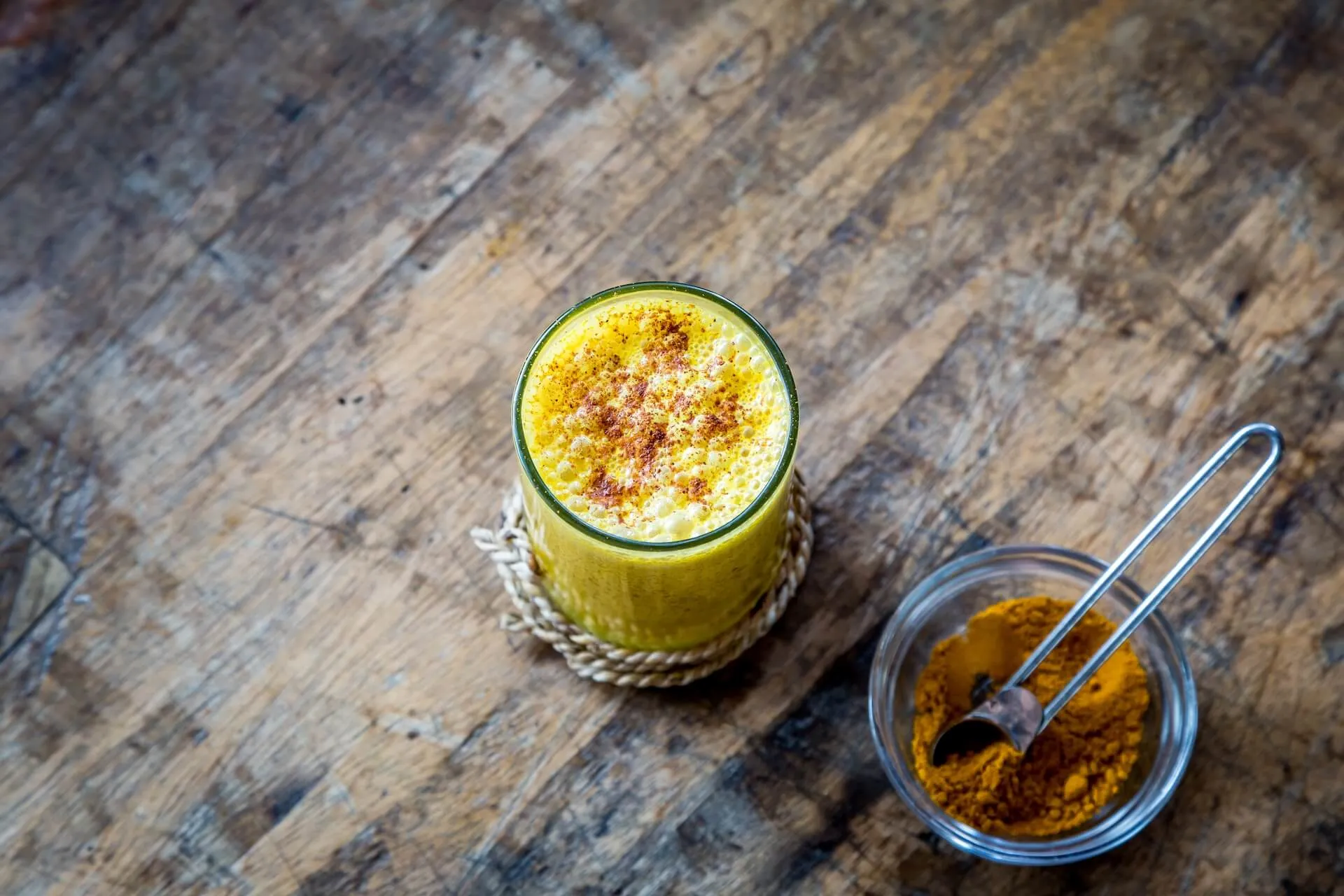Feel overwhelmed when you look at the endless rows of milk and milk-alternative options in the grocery store? You're not alone. In the past, non-dairy options were limited to small specialty health food stores, and the tastes were sometimes less than palatable.
But things have changed. Over the past few years, the dairy-free beverage industry has exploded with new options, and most of which taste pretty delicious. But with all the choices available, you may wonder if these options are healthy for weight loss.
The short answer is yes, but it depends on your individual needs and dietary preferences.
Some people may do better with cow's milk, while others may find that plant-based milks are a better choice—and some may avoid any type of milk altogether. But, ultimately, it comes down to what fits your nutrition needs and makes your taste buds happy.
Do you need to drink milk or dairy alternatives to lose weight? No, but if you like how it tastes, milk can be a part of your daily diet. Here's what you need to know about the different types of milk and milk alternatives and how they can impact your health goals.
How Can Milk Support the Body?
It's funny when a food becomes controversial—it's just food, after all—but milk is just one of those topics. Some strongly believe cow's milk is unhealthy for everyone and should be avoided, while others tout the benefits of drinking milk for better health.
The truth is there are pros and cons to both cow's milk and plant-based milks. Cow's milk has plusses for protein, calcium, and other nutrients, but plant-based milk is an excellent choice for people who don't tolerate dairy.
That said, there are health benefits to both cow's milk and plant-based milks that can support the body, including:
- Protein: Cow’s milk and some plant-based milks contain protein, which, aside from being essential for weight loss, is needed for building and repairing muscles, organs, and other tissues.¹
- Calcium: Milk is one of the best dietary sources of calcium—important for bone health.² Some plant-based milks may also be fortified with calcium.
- Vitamin D: Most types of milk are fortified with vitamin D, which is necessary for calcium absorption, bone health, and many other functions.³
- Fat: Certain types of milk or alternatives contain fat, which can provide essential nutrients and help you feel fuller after drinking it.⁴
Is milk the only food that provides all these nutrients? No, but some people find drinking a glass of milk or using milk or dairy alternatives as a base in a smoothie is a quick and easy way to get a lot of the nutrients at once.
Does Milk Raise Blood Sugar Levels?
Cow’s milk contains lactose, a sugar broken down into two sugars—glucose and galactose—in the body.⁵ Glucose will raise blood sugar, but the increase isn't too high since dairy-based milk is considered a low-glycemic food.⁶
The glycemic index measures how quickly a carb-containing food raises blood sugar. A food with a low glycemic index, like cow's milk, causes a slower and smaller rise in blood sugar levels than a food with a high glycemic index. Milk also contains protein (and sometimes fat, depending on what type you drink), which also helps stabilize blood sugar.
Plant-based milk options don't contain lactose, but depending on the type, they can still contain natural or added sugars (more details on the different types below).
Interestingly, dairy-based milk isn't high on the glycemic index, but it is insulinogenic, which means it can stimulate the release of insulin.⁷ Insulin is a hormone that helps regulate blood sugar levels, which may help keep milk from significantly impacting blood sugar.
At the same time, some scientists question whether people who drink large amounts of milk may be more likely to be insulin resistant, meaning their bodies don't respond as well to insulin, if they constantly produce higher than normal insulin. More research is needed, but one study found that women who consumed higher amounts of dairy had an increased risk of insulin resistance.⁷

Is Milk Good for Weight Loss?
Milk alone isn't a magic potion, but it can be a part of a healthy diet to support weight loss. Why?
- Milk is calcium-rich. Calcium, along with vitamin D, may support weight loss in combination with an overall healthy diet. One study found that higher calcium intake was associated with more weight loss.⁸
- Milk is high-protein. Protein can also support weight loss by helping to reduce hunger and increasing how full you feel after meals.⁹
- Milk contains fat that could promote satiety. Moderate amounts of fat can also help with weight loss by making you feel fuller after eating and helping to reduce cravings. Chugging a gallon of full-fat milk isn't exactly a great idea (for many reasons), but drinking milk or milk alternatives that contain milk could help you feel fuller longer.¹⁰
What Is The Healthiest Milk Option?
The word healthy is entirely individualized. What works for one person may not work for another. If you can't tolerate dairy or simply don't want to include it in your diet, there are plenty of delicious plant-based milk options that can provide similar nutrients and health benefits. Here are 9 healthy milk options:
3 Healthy Dairy Milk Options
- Cow-milk. We've already talked about the potential benefits of cow’s milk for weight loss. It's high in protein and calcium and low in calories, making it a good choice for those trying to lose weight. Sure, this type of milk doesn't work for people with lactose intolerance or any kind of dairy sensitivity or allergy, but it can be a good option for those who tolerate it.
- Goat milk. Interestingly, some people notice that goat milk is easier to digest than cow milk. It's also a good source of protein and calcium, which may support weight loss in the same way cow milk does.¹¹ Some people find the taste of goat milk to be strong, so you'll have to experiment to see if it works for you.
- A2 milk. Technically, A2 milk is cow milk, but it's worth mentioning separately. A2 milk is made from cows that only produce the A2 protein, which may lead to fewer GI symptoms for people who have trouble digesting lactose.¹²
{{mid-cta}}
9 Healthiest Milk Alternatives
- Soy milk. For a long time, soy milk was the go-to choice for non-dairy milk. It's one of the only options that matches the protein content of cow milk and is usually fortified with calcium and vitamin D. Soybeans are one of the top 8 allergens, so this isn't an option for people with allergies. Still, it's a good choice for those who can tolerate it and are looking for a milk alternative with similar health benefits to cow milk.
- Almond milk. Almond milk popularity has soared over the last few years—so much so that there are environmental concerns, given it takes about one gallon of water to grow one almond.¹³ The mild flavor works well as a substitute in smoothies or over oatmeal, but unless it's fortified, almond milk does not have very much protein or other nutrients.
- Oat milk. Oat milk is low in protein but has a creamier mouthfeel than many other plant-based options,* so it's become more popular in recent years. Since oat milk is made from oats, which are higher in carbohydrates, it has the potential to raise blood sugar more than some of other plant-based milks. The good news is that oat milk can contain small amounts of a heart and gut-health-supporting type of fiber called beta-glucan.¹⁴
- Coconut milk. A creamy option, coconut milk is a sub for those who would love to include whole milk but can't tolerate dairy. That said, a little goes a long way. Coconut milk is very high in fat and calories can add up quickly.
- Hemp milk. Yes, it's made from the same plant that marijuana comes from, but hemp milk won't get you high. Hemp milk is higher in protein than some of the other options, one cup of hemp milk has about 3 grams of protein.¹⁵ Hemp milk is also a good source of calcium. It has a taste that some describe as nutty or earthy, so you may want to test it out to see if it's a good fit for you.
- Pea-milk. Peas may not be the first thing you think of when you think of milk, but these little starchy veggies can be used to make non-dairy milk. Ripple, an increasingly popular brand, is made from yellow peas and offers 8 grams of protein per cup.¹⁶ It also contains calcium, iron, and vitamin D.
*Based on USDA Nutrient Database but may differ slightly depending on the individual brand.¹⁷
4 Things to Consider If You Choose a Plant-Based Milk
Not all plant-based milks are created equal. Here are a few things to keep in mind:
- Protein content. As we've seen, some plant-based milks are higher in protein than others. If you want to increase your protein intake, you'll want to choose hemp or pea-based milk.
- Added gums or stabilizers. Gums or stabilizers are added to non-dairy milks to help them maintain a creamy texture. Some people may have trouble digesting these ingredients, so if you have GI symptoms after drinking plant-based milk, you may want to try one that doesn't have these added ingredients.
- Sugar content. Sometimes sweeteners added to plant-based beverages are disguised with unfamiliar names like "maltodextrin" or "evaporated cane juice." If you're trying to limit your sugar intake, choose an option with no added sugars.
- Fortification. As we've seen, some plant-based milks are fortified with nutrients like calcium and vitamin D. If you’ve been relying on milk as an essential source of vitamins or minerals, make sure you choose fortified options if you opt to go plant-based.

Topics discussed in this article:
References
- Carbone, J. W., & Pasiakos, S. M. (2019). Dietary Protein and Muscle Mass: Translating Science to Application and Health Benefit. Nutrients, 11(5), 1136. https://doi.org/10.3390/nu11051136
- Ratajczak, A. E., Zawada, A., Rychter, A. M., Dobrowolska, A., & Krela-Kaźmierczak, I. (2021). Milk and Dairy Products: Good or Bad for Human Bone? Practical Dietary Recommendations for the Prevention and Management of Osteoporosis. Nutrients, 13(4), 1329. https://doi.org/10.3390/nu13041329
- Nair, R., & Maseeh, A. (2012). Vitamin D: The "sunshine" vitamin. Journal of pharmacology & pharmacotherapeutics, 3(2), 118–126. https://doi.org/10.4103/0976-500X.95506
- Górska-Warsewicz, H., Rejman, K., Laskowski, W., & Czeczotko, M. (2019). Milk and Dairy Products and Their Nutritional Contribution to the Average Polish Diet. Nutrients, 11(8), 1771. https://doi.org/10.3390/nu11081771
- Deng, Y., Misselwitz, B., Dai, N., & Fox, M. (2015). Lactose Intolerance in Adults: Biological Mechanism and Dietary Management. Nutrients, 7(9), 8020–8035. https://doi.org/10.3390/nu7095380
- Wolever, T. M., Brand-Miller, J. C., Abernethy, J., Astrup, A., Atkinson, F., Axelsen, M., Björck, I., Brighenti, F., Brown, R., Brynes, A., Casiraghi, M. C., Cazaubiel, M., Dahlqvist, L., Delport, E., Denyer, G. S., Erba, D., Frost, G., Granfeldt, Y., Hampton, S., Hart, V. A., … Zhang, J. (2008). Measuring the glycemic index of foods: interlaboratory study. The American journal of clinical nutrition, 87(1), 247S–257S. https://doi.org/10.1093/ajcn/87.1.247S
- Tucker, L. A., Erickson, A., LeCheminant, J. D., & Bailey, B. W. (2015). Dairy consumption and insulin resistance: the role of body fat, physical activity, and energy intake. Journal of diabetes research, 2015, 206959. https://doi.org/10.1155/2015/206959
- Shahar, D. R., Schwarzfuchs, D., Fraser, D., Vardi, H., Thiery, J., Fiedler, G. M., Blüher, M., Stumvoll, M., Stampfer, M. J., Shai, I., & DIRECT Group (2010). Dairy calcium intake, serum vitamin D, and successful weight loss. The American journal of clinical nutrition, 92(5), 1017–1022. https://doi.org/10.3945/ajcn.2010.29355
- Leidy, H. J., Clifton, P. M., Astrup, A., Wycherley, T. P., Westerterp-Plantenga, M. S., Luscombe-Marsh, N. D., Woods, S. C., & Mattes, R. D. (2015). The role of protein in weight loss and maintenance. The American journal of clinical nutrition, 101(6), 1320S–1329S. https://doi.org/10.3945/ajcn.114.084038
- Kavezade, S., Mozaffari-Khosravi, H., Aflatoonian, M., Asemi, M., Mehrabani, S., & Salehi-Abargouei, A. (2018). The effects of whole milk compared to skim milk and apple juice consumption in breakfast on appetite and energy intake in obese children: a three-way randomized crossover clinical trial. BMC nutrition, 4, 44. https://doi.org/10.1186/s40795-018-0253-8
- Ceballos, L. S., Morales, E. R., de la Torre Adarve, G., Castro, J. D., Martínez, L. P., & Sampelayo, M. R. S. (2009). Composition of goat and cow milk produced under similar conditions and analyzed by identical methodology. Journal of food Composition and Analysis, 22(4), 322-329.
- Ramakrishnan, M., Eaton, T. K., Sermet, O. M., & Savaiano, D. A. (2020). Milk Containing A2 β-Casein ONLY, as a Single Meal, Causes Fewer Symptoms of Lactose Intolerance than Milk Containing A1 and A2 β-Caseins in Subjects with Lactose Maldigestion and Intolerance: A Randomized, Double-Blind, Crossover Trial. Nutrients, 12(12), 3855. https://doi.org/10.3390/nu12123855
- Fulton, J., Norton, M., & Shilling, F. (2019). Water-indexed benefits and impacts of California almonds. Ecological indicators, 96, 711-717.
- Önning, G., Wallmark, A., Persson, M., Åkesson, B., Elmståhl, S., & Öste, R. (1999). Consumption of oat milk for 5 weeks lowers serum cholesterol and LDL cholesterol in free-living men with moderate hypercholesterolemia. Annals of Nutrition and Metabolism, 43(5), 301-309.
- https://fdc.nal.usda.gov/fdc-app.html#/food-details/1908151/nutrients
- https://www.ripplefoods.com/original-plant-milk/
- https://fdc.nal.usda.gov/fdc-app.html#/




.svg)






.jpeg)



.svg)
.svg)
.svg)
.svg)
.svg)
.svg)
.svg)
